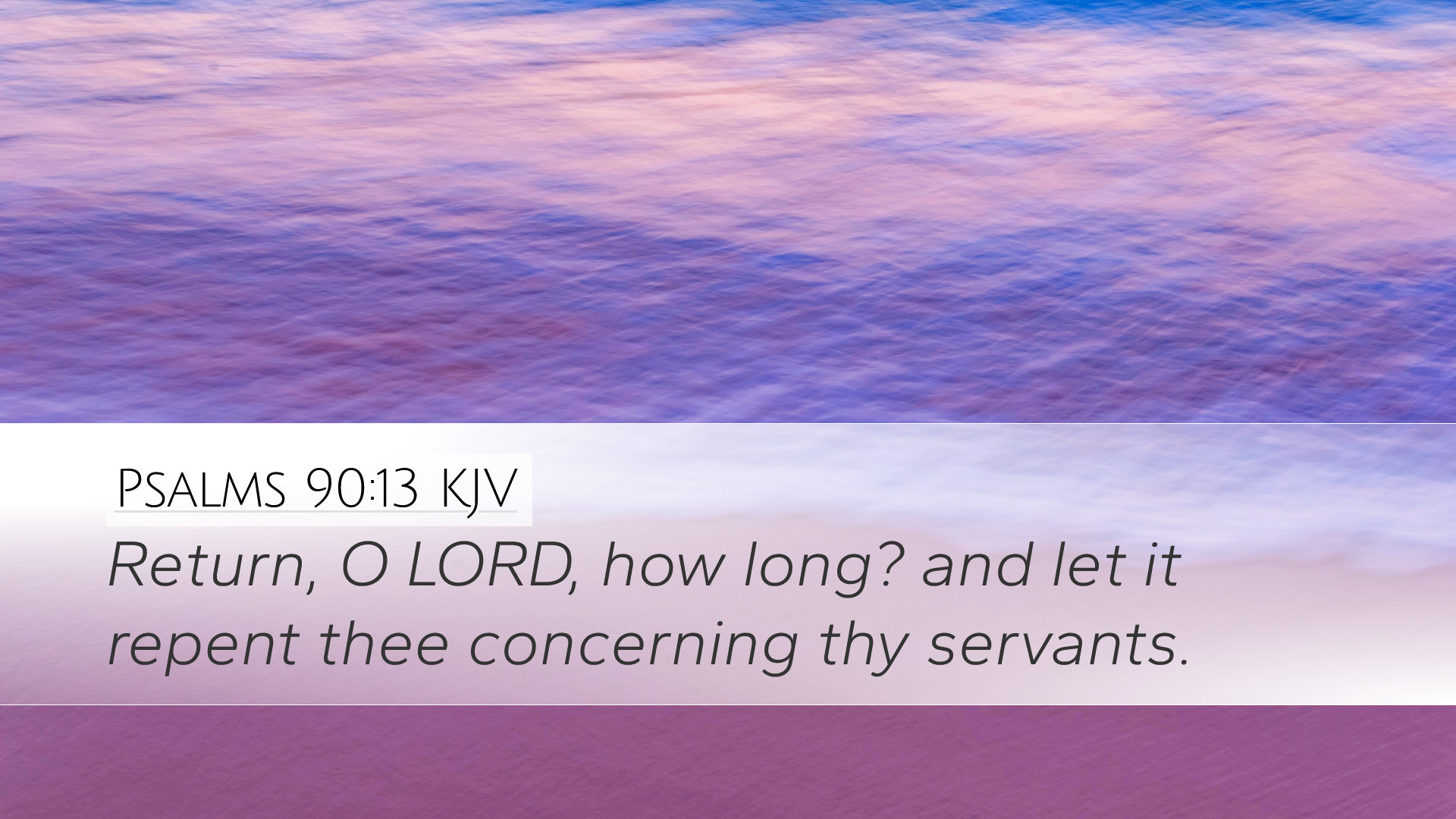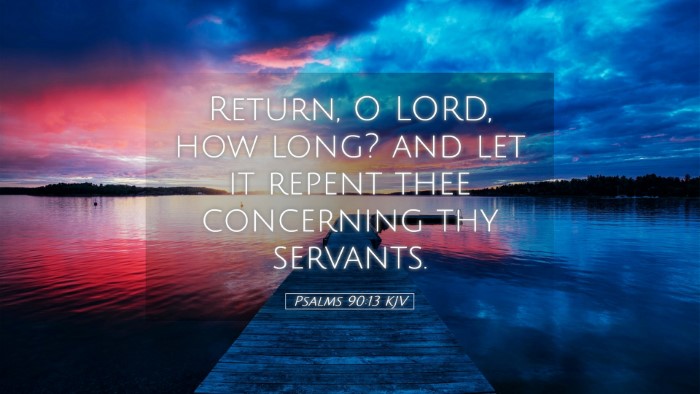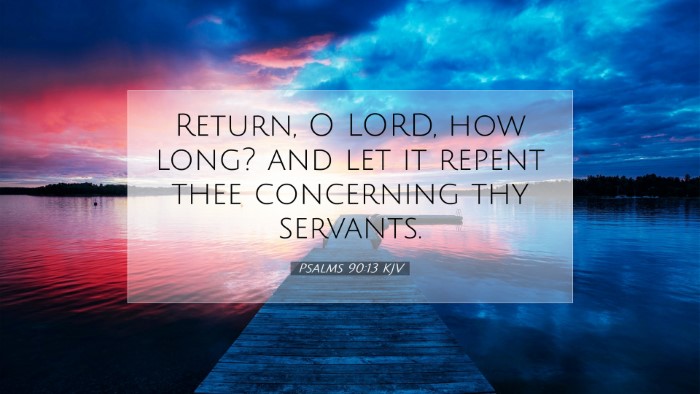Psalms 90:13 Commentary
Verse Reference: Psalms 90:13
"Return, O LORD; how long? and let it repent thee concerning thy servants."
Contextual Overview
Psalms 90, a prayer of Moses, highlights the eternal nature of God juxtaposed with the transient existence of humanity. This chapter unfolds a deep awareness of human mortality, sin, and a plea for God's mercy. In particular, verse 13 reflects a yearning for divine intervention and mercy, encapsulating both lament and hope.
Insights from Commentaries
Matthew Henry’s Commentary
Matthew Henry emphasizes the heartfelt plea expressed in this verse. He points out that the psalmist calls upon the Lord to "return," indicative of a perceived distance or delay in divine intervention. Henry notes that this reflects the human condition of yearning for God's presence, particularly in times of distress.
He highlights the rhetorical question "how long?" as a depiction of the intensity of the suffering endured by God’s servants. This indicates a deep sense of urgency for God’s favor and intervention. Henry elaborates that the cry for God’s "repentance" in the context of mercy suggests that the psalmist is imploring God to reconsider His dealings with humanity and extend compassion, despite their iniquities.
Albert Barnes’ Notes
Albert Barnes presents a detailed analysis, addressing the theme of divine compassion. He interprets the phrase "let it repent thee" as an invitation for God to show pity, emphasizing that divine “repentance” in this context refers to God’s willingness to change His response towards His wayward people.
Barnes further elucidates that the psalmist’s mention of "thy servants" is significant. It underscores the role of the faithful who depend on God's mercy. The pastor and servant of God must recognize that they stand as mediators and representatives of the people before the Almighty, fostering intercession for those in need.
Adam Clarke’s Commentary
Adam Clarke expounds on the anguish and resolve encapsulated in this petition. Clarke expresses that the prayer reflects not merely a request for change but also a profound understanding of God’s governance over human history. He notes that the psalmist’s inquiry about the duration of suffering augments the emotional weight of the psalm, suggesting a deep-seated desire for relief and renewal.
Clarke asserts that this verse is not merely a lament but a hopeful invocation of God’s promises. It serves to remind the faithful that God is aware of their plight and calls them to confidence in His foresight and plans. This assurance is pivotal for leaders and believers alike who navigate through trials.
Theological Reflections
The intersection of human frailty and divine compassion stands at the heart of this verse. The cry for God to "return" serves to highlight the distance often felt by believers during trials. Yet, it simultaneously opens a pathway to reconciliation and renewal.
- Human Mortality: The acknowledgment of life’s brevity reflects a call for mindfulness in spiritual and worldly pursuits.
- Divine Mercy: The essence of divine mercy is both sought after and expressed. The prayer reveals a theological understanding of God who is willing to relent and restore.
- Community Intercession: There is a communal aspect to the cry, reminding leaders of their role in advocating for those they lead, reflecting a servant leadership model.
Practical Applications
For pastors, leaders, and congregants, this verse invites several practical applications:
- Encouragement in Prayer: Regularly seek God’s presence through prayer, especially during seasons of doubt and difficulty.
- Understanding God’s Character: Study the nature of God’s mercy and compassion while serving others and in personal life.
- Encouraging Community: Foster a culture of prayer support within the congregation, where believers intercede for one another.
- Embracing Suffering: Recognize suffering as a pathway to deeper reliance on God, cultivating resilience and faith within the community.
Conclusion
Psalms 90:13 encapsulates a profound plea for divine return and compassion. As highlighted by the commentaries, this verse serves as a vital reminder of the intricate dance between human frailty and divine mercy. Embracing these insights not only enriches theological understanding but also enhances practical spirituality for communal and individual faith journeys.


